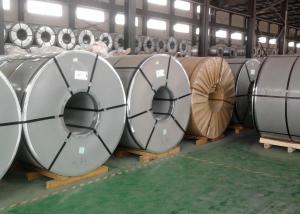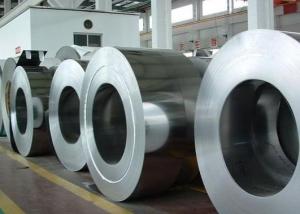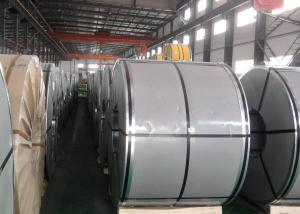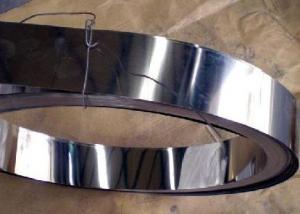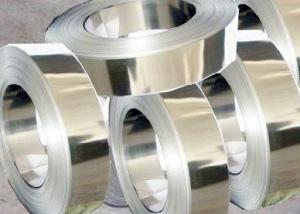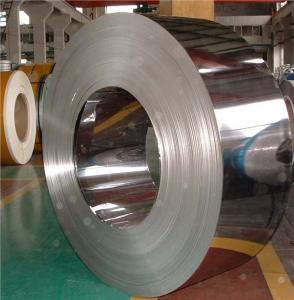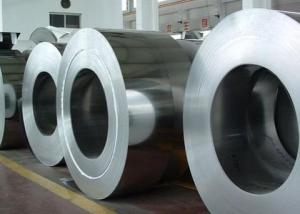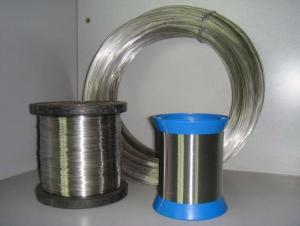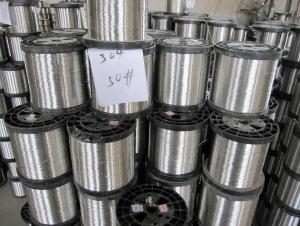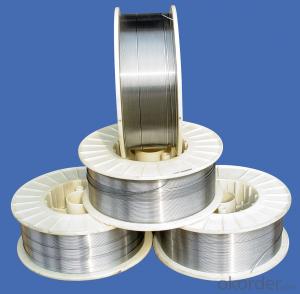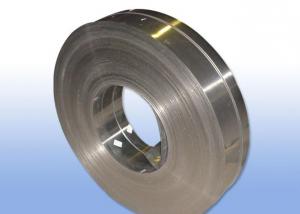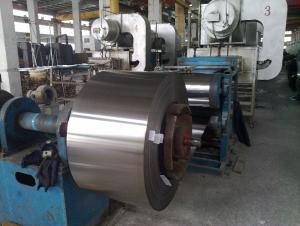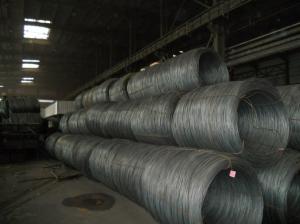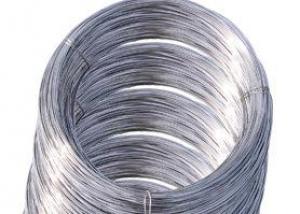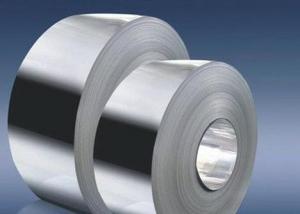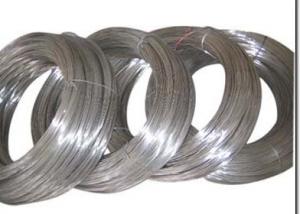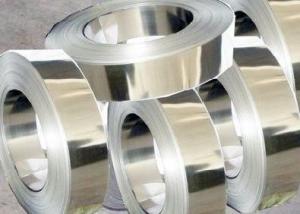304 2B Stainless Steel Strips
- Loading Port:
- China Main Port
- Payment Terms:
- TT or LC
- Min Order Qty:
- 1 Ton m.t.
- Supply Capability:
- 2000 Tons Per Month m.t./month
OKorder Service Pledge
OKorder Financial Service
You Might Also Like
304 2B Stainless Steel Strips
1. Chemical composition
|
C |
Si |
Mn |
P |
S |
Ni |
Cr |
|
max0.08 |
max1.00 |
max2.00 |
max0.045 |
max0.03 |
8.00-10.50 |
18.00-20.00 |
2. Mechanical properties
|
Yield Strength |
Tensile |
Elongation |
Hardness (HV) |
Hardness (HRB) |
|
≥ 205 |
≥ 520 |
≥ 40 |
≤ 200 |
≤ 90 |
3. Standard: AISI, ASTM, GB, EN, DIN, JIS
4. Surface: 2B, NO.1, BA, NO.4, Hairline, SB, Mirror finish, Anti-skid, Cherkered etc.
5. Size: Thickness: 0.3-3mm (cold rolled), 3-40mm (hot rolled)
Width: 18-600mm
Length: As customers' request.
6. MOQ: 1 Ton
7. Payment terms: T/T or L/C
8. Packing: Seaworthy package with wooden or Iron pallets with the paper and the steel strip, or as customers' request.
9. Delivery time: Usually about 7 days after we confirming the order, or according to your quantity.
If you have any demand, pls feel free to contact me.
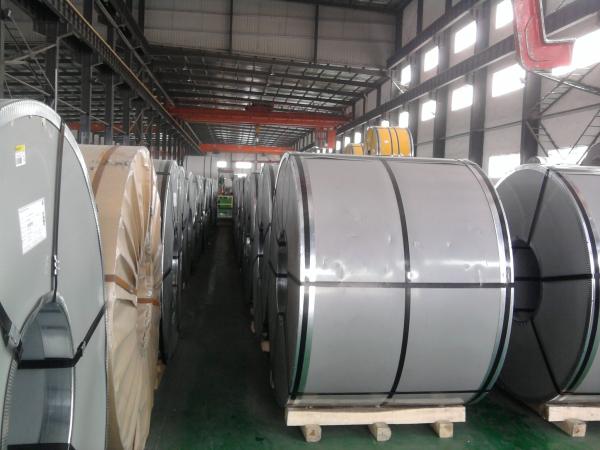
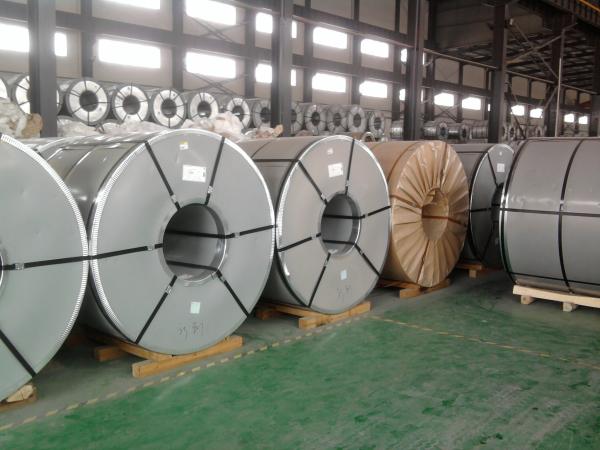
- Q:Is stainless steel wire suitable for wire stripping?
- Yes, stainless steel wire is suitable for wire stripping. Stainless steel is a strong and durable material that is resistant to corrosion and rust, making it suitable for various applications. When it comes to wire stripping, stainless steel wire can be easily stripped using tools specifically designed for this purpose, such as wire stripping pliers or automatic wire strippers. These tools have adjustable settings to accommodate different wire sizes and can effectively remove the insulation from stainless steel wire without damaging the wire itself.
- Q:Which is good, brushed stainless steel or plain stainless steel?.
- Can not generally say which kind of stainless steel is good, stainless steel is stainless acid resistant steel abbreviation, resistance to air, steam, water and other weak corrosive medium or stainless steel, called stainless steel.
- Q:Can stainless steel wire be soldered?
- Yes, stainless steel wire can be soldered. However, it is important to note that stainless steel has a high resistance to corrosion and oxidation, which can make it more difficult to solder compared to other metals like copper or brass. To successfully solder stainless steel wire, it is recommended to use a specialized type of solder known as stainless steel solder or silver solder, which has a higher melting point and better adhesion to stainless steel. Additionally, it is crucial to thoroughly clean the surface of the stainless steel wire before soldering to remove any dirt, grease, or oxide layers that could hinder the soldering process. The use of flux is also highly recommended as it helps to clean the surface and promote the flow of solder. Overall, while soldering stainless steel wire may require more skill and suitable materials, it is definitely possible with the right techniques and equipment.
- Q:Which is better, grade 12.9 screw and stainless steel screw?
- Look at the environment used, in the corrosive environment, stainless steel screws, anti-oxidation, corrosion resistance, stainless steel screws a little betterIn the high strength and high impact environment, grade 12.9 is the top grade of screw. It has high hardness and tensile strength. Its Rockwell hardness (HRC) can reach 39-44, and tensile strength can reach 1220N/mm2
- Q:Is stainless steel wire suitable for outdoor applications?
- Stainless steel wire proves extremely appropriate for outdoor purposes. Its remarkable resistance to corrosion, which prevents rust and deterioration caused by exposure to moisture, humidity, and other elements commonly encountered in outdoor settings, is well-known. Thanks to this durability, stainless steel wire emerges as the perfect selection for a range of outdoor applications, including fencing, landscaping, marine and boating activities, and outdoor lighting. Furthermore, stainless steel wire showcases strength, versatility, and the ability to endure extreme temperatures, thereby amplifying its aptness for outdoor utilization.
- Q:How is stainless steel wire different from other types of wire?
- The uniqueness of stainless steel wire lies in its composition and properties, setting it apart from other wire types. Unlike its counterparts, stainless steel wire is crafted from a blend of steel and chromium, granting it exceptional resistance to rust, corrosion, and staining. Consequently, it boasts remarkable durability and longevity, even in the face of harsh and corrosive conditions. Additionally, stainless steel wire possesses outstanding strength and tensile properties, rendering it an ideal choice for applications demanding robustness and endurance, such as in industrial or construction settings. Furthermore, its strength-to-weight ratio surpasses that of numerous wire varieties, enabling versatile and efficient utilization across a wide array of applications. Another noteworthy distinction lies in the aesthetic allure of stainless steel wire. Its glossy and gleaming appearance lends it a captivating and contemporary look. Consequently, stainless steel wire has gained popularity in various decorative and architectural domains, including the creation of jewelry, sculptures, and wire mesh. Moreover, stainless steel wire exhibits a high resistance to extreme temperatures, making it well-suited for deployment in both high and low temperature environments. Furthermore, it showcases exceptional electrical conductivity, making it the preferred choice for applications necessitating electrical conduction, such as in electronics or electrical wiring. In conclusion, stainless steel wire distinguishes itself from other wire types due to its resistance to corrosion, strength, aesthetic appeal, temperature resilience, and electrical conductivity. Its unique combination of properties positions it as a versatile and dependable option for a broad range of applications within diverse industries.
- Q:What are the different types of stainless steel wire mesh screens?
- There are several different types of stainless steel wire mesh screens available, each designed for specific applications and requirements. Some of the common types include: 1. Plain Weave: This is the most basic type of stainless steel wire mesh screen, where the wires are woven alternately over and under each other in a simple crisscross pattern. It offers excellent strength and durability, making it suitable for general-purpose applications. 2. Twill Weave: In this type of mesh screen, the wires are woven in a diagonal pattern, resulting in a tighter weave and smaller openings. Twill weave screens are commonly used for fine filtration and sieving applications where a high level of particle retention is required. 3. Dutch Weave: Dutch weave screens have a unique weave pattern where the warp wires are thicker and spaced closer together, while the weft wires are thinner and spaced further apart. This results in a more robust mesh with larger openings, making it ideal for high-pressure filtration and separation processes. 4. Reverse Dutch Weave: Similar to Dutch weave, the reverse Dutch weave has thicker weft wires and thinner warp wires. This configuration allows for better flow characteristics and higher mechanical strength, making it suitable for applications such as extrusion and polymer filtration. 5. Welded Wire Mesh: Unlike woven screens, welded wire mesh screens are made by welding intersecting wires together. This type of mesh offers a more rigid and uniform structure, making it suitable for applications that require higher strength and stability, such as security fencing and machine guarding. 6. Expanded Metal Mesh: Expanded metal mesh screens are created by cutting and stretching a metal sheet, resulting in a pattern of diamond-shaped openings. This type of mesh is highly versatile and can be used for various applications, including architectural facades, walkways, and ventilation screens. 7. Perforated Metal Mesh: Perforated metal mesh screens are made by punching or drilling holes into a metal sheet. The size, shape, and arrangement of the holes can be customized to meet specific requirements. Perforated metal mesh screens are commonly used for applications such as acoustic panels, decorative cladding, and airflow control. These are just a few examples of the different types of stainless steel wire mesh screens available. The choice of mesh screen will depend on factors such as the desired filtration or sieving characteristics, mechanical strength requirements, and the specific application in which it will be used.
- Q:Can stainless steel wire screens be used for fire protection?
- Stainless steel wire screens can indeed be used for fire protection purposes. Stainless steel is known for its excellent fire resistance properties, which makes it a suitable material for applications that require fire protection. Stainless steel wire screens can withstand high temperatures, resist corrosion, and maintain their structural integrity even under extreme heat conditions. These screens can be used in various fire protection systems, such as fire doors, vents, and barriers, to prevent the spread of fire and smoke. Additionally, stainless steel wire screens are also used in fireplaces and chimneys to prevent sparks and embers from escaping and causing potential fires. Overall, stainless steel wire screens are a reliable and durable choice for fire protection applications.
- Q:What are the different types of stainless steel wire used for fencing?
- There are various types of stainless steel wire used for fencing, including 304 stainless steel wire, 316 stainless steel wire, and 430 stainless steel wire. These different types of stainless steel offer varying levels of corrosion resistance, strength, and durability, allowing for better selection based on specific fencing requirements.
- Q:What are the different finish options available for stainless steel wire?
- Some of the different finish options available for stainless steel wire include bright, matte, brushed, polished, and coated finishes.
1. Manufacturer Overview |
|
|---|---|
| Location | Zhejiang, China |
| Year Established | 2005 |
| Annual Output Value | Above US$1.6 million |
| Main Markets | Europe, North America. |
| Company Certifications | |
2. Manufacturer Certificates |
|
|---|---|
| a) Certification Name | |
| Range | |
| Reference | |
| Validity Period | |
3. Manufacturer Capability |
|
|---|---|
| a)Trade Capacity | |
| Nearest Port | Shanghai |
| Export Percentage | 40% |
| No.of Employees in Trade Department | Above 30 people |
| Language Spoken: | English, Chinese |
| b)Factory Information | |
| Factory Size: | Above 5000 square meter |
| No. of Production Lines | Above 6 |
| Contract Manufacturing | OEM Service Offered |
| Product Price Range | Average |
Send your message to us
304 2B Stainless Steel Strips
- Loading Port:
- China Main Port
- Payment Terms:
- TT or LC
- Min Order Qty:
- 1 Ton m.t.
- Supply Capability:
- 2000 Tons Per Month m.t./month
OKorder Service Pledge
OKorder Financial Service
Similar products
New products
Hot products
Hot Searches
Related keywords
